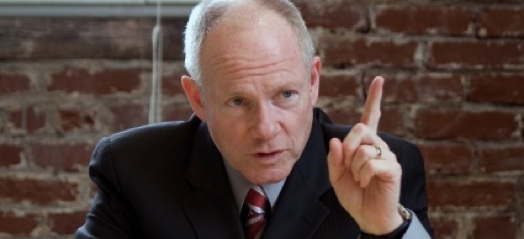The 3 Unmentionables For the Black Professional!
 As a Black professional in a white business world, you have plenty of chances to interact at work and socially, with coworkers and management.In many cases this interaction can either help create, or destroy, the persona that you want to project.
As a Black professional in a white business world, you have plenty of chances to interact at work and socially, with coworkers and management.In many cases this interaction can either help create, or destroy, the persona that you want to project.
_______________________
The Three Unmentionables
No matter what your level of comfort with certain topics, I suggest you avoid discussing these three topics, even when prompted:
- Politics
- Religion
- Race relations
Politics can go nuclear at any moment. There’s a good possibility that just as your race may be different, your politics will vary widely also. This was obviously a big issue during the campaign of the first Black president. Do not be baited to discuss politics with your co-workers unless you are prepared to have that same conversation with management. Word about diverse views spreads quickly and without accuracy. Your views are your own, and unless you have some other motive, they are best left that way. “Red state” versus “blue state” issues do not generate fodder for a conversation that you need to open a door to.
Religion discussions are a ticking time bomb. It is as personal as any subject could be, and it is dangerous for a workplace discussion, even if you are of like color with those you work with. Sunday morning hours are the most segregated hours that American society can produce. I would avoid discussions of religion for all the right reasons, so you know how I feel about this when you are of a different race and religion. Besides, it is frankly none of their business.
Race relations are undoubtedly the 800 pound gorilla in the room. No one believes his or her stance on race is an issue, until it butts up against another person’s stance. At that point the other persons stance is perceived to be the issue. I think you get my drift. By the time the discussion starts the relationships can be damaged. At the root of this is the 3P’s (Preference, Perceptions, and Prejudice), his/hers and yours.
I’m sure that I don’t have to dive to deep into any of these illustrations; many of you have lived this for years. Recognize that it is easier to stay above some of these dangerous conversations than to think you can change someone’s perspectives. Additionally it is easier to avoid these conversations than to try to repair the aftermath. Everyone you work with is not your friend so you have no obligations here. Besides, you have important sales to make.
Discussions about religion without empathy, tolerance, and an open mind will drag someone down an abyss. Discussions about politics are polarizing. I respect everyone’s religious beliefs. One’s politics are one’s own business. You just don’t need to put your business out there.
A Special Word on Discussions About Race Relations
Before I close on this topic, I do want to focus for a moment on the topic of race relations. This topic can be radioactive. There are friends that cannot have a gentle discussion on this topic. With so much at stake, you cannot be assured that the discussion is sincere or an effort to pull you into the ‘rip-tide’ of controversy. So with that in mind, leave that one for relatives and those people you have a close and sincere relationship with outside of work. Since it is impossible to ‘put toothpaste back in the tube’, this is an unmentionable.
We can strengthen the ill effects of the 3P’s with some of our actions. The impact of preference, perceptions, and prejudice can be made rock-hard when our stances are the opposite of those people who can have an effect on our employment future.
I certainly look forward to your comments. Please take a moment and share them with us.
 May 14, 2015
|
Posted by Admin9!
May 14, 2015
|
Posted by Admin9!
 Categories:
Categories:  Tags:
Tags: 

Your Comments